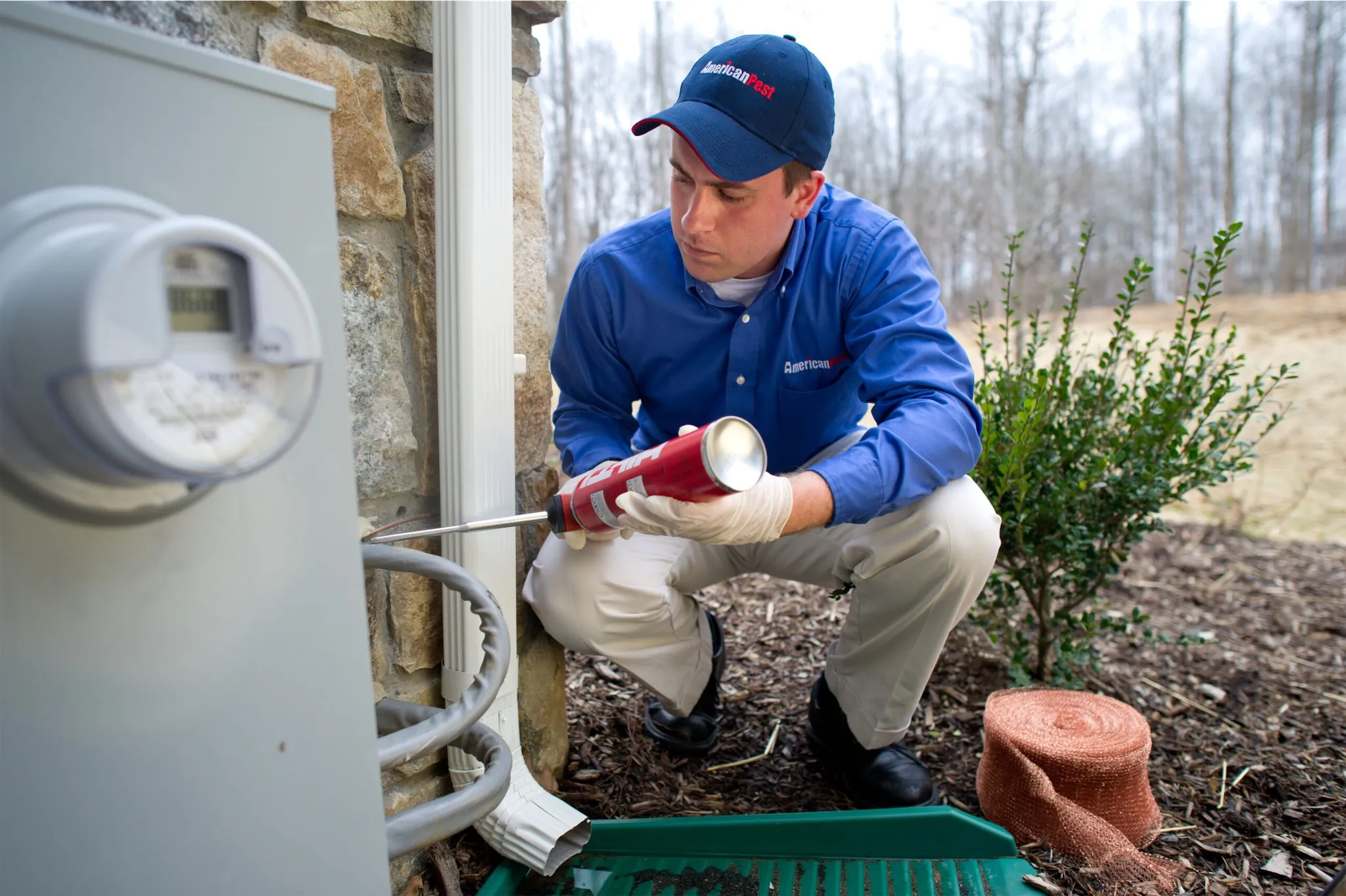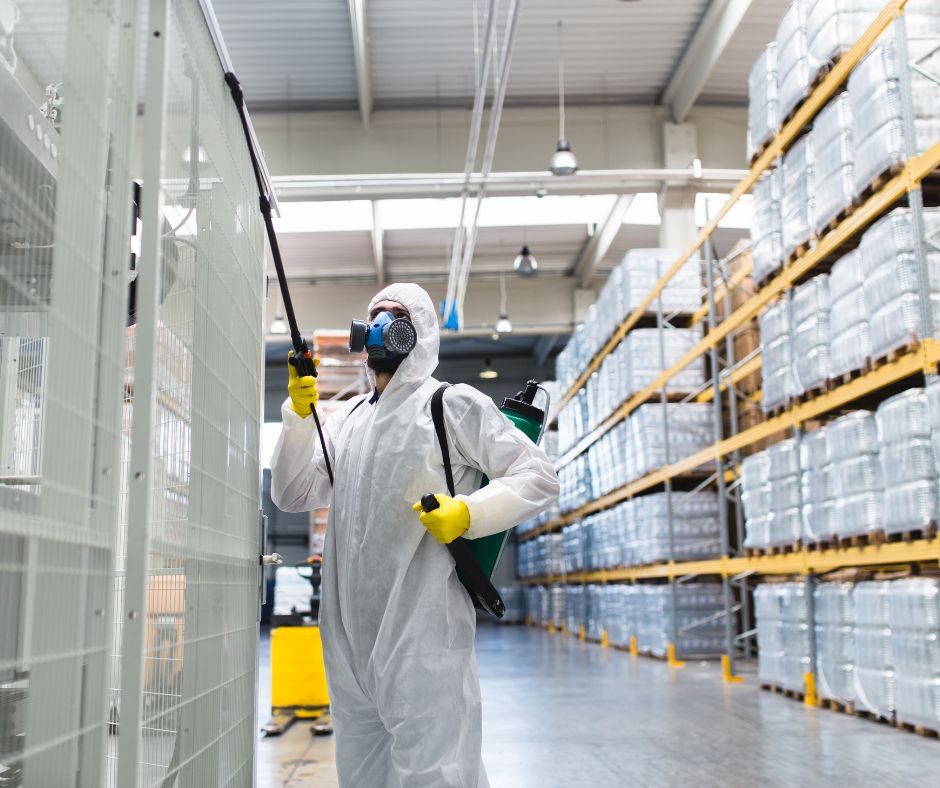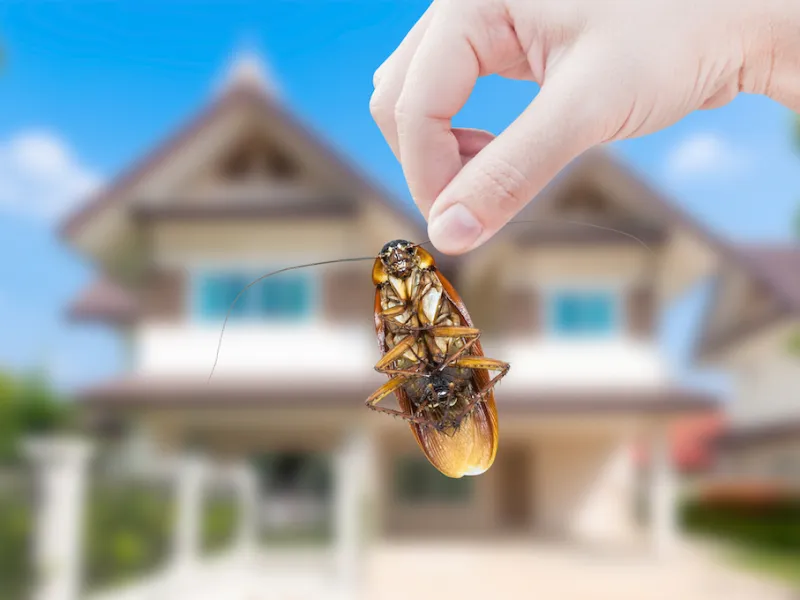Discover the Importance of Parasite Control in Keeping a Healthy Setting and Treatment Methods

The Function of Parasites in Ecological Communities
Pests, typically watched only as hassles, play a multifaceted duty in ecological communities that is essential for preserving ecological balance. They contribute significantly to different ecological procedures, including pollination, nutrient cycling, and insect control. Many insect types, such as bees and butterflies, are necessary pollinators for a large variety of plants, which in turn supports biodiversity and food production.
Furthermore, bugs act as prey for various predators, producing an essential link in food internet. This connection makes certain the survival of various varieties and helps control populaces within communities (Termite treatment Port Charlotte). Decomposer parasites, such as certain beetles and fungi, are instrumental in breaking down organic matter, hence enriching soil and helping with nutrition recycling.
Conversely, while pests can be advantageous, their overpopulation or invasion into non-native settings might interfere with these environmental functions. This intricacy emphasizes the importance of understanding pest dynamics, as efficient parasite management strategies must take into consideration both their ecological duties and possible effect on human tasks. Stabilizing pest existence while lessening injury is necessary for maintaining the stability of communities and ensuring agricultural performance.
Wellness Threats Connected With Pests
The existence of parasites in numerous settings extends beyond their ecological functions, as they likewise posture significant health and wellness risks to pets and humans. Numerous insects, consisting of bloodsuckers, rats, and bugs, are carriers of conditions that can have major wellness ramifications. As an example, rodents are understood to transfer hantavirus and leptospirosis, both of which can bring about serious respiratory and renal problems, respectively.
Pests such as mosquitoes and ticks are infamous for spreading vector-borne conditions like malaria, dengue high temperature, and Lyme disease. These diseases can result in high morbidity and death rates, particularly in susceptible populations. Furthermore, pests like roaches and vermins can exacerbate allergic reactions and asthma, adding to breathing issues in individuals, specifically those with pre-existing problems.
In addition, the visibility of bugs can bring about mental stress and anxiety and discomfort, influencing overall health. Contamination of food and surfaces by pest droppings and stays can cause foodborne diseases, highlighting the relevance of maintaining hygienic conditions. Consequently, comprehending the wellness risks linked with insects is critical in recognizing the requirement of efficient parasite administration strategies to secure human and animal wellness.

Advantages of Reliable Insect Control
Reliable parasite control is crucial for keeping a risk-free and healthy atmosphere, as it continually mitigates the many dangers connected with parasite problems. One of the main benefits of reliable parasite management is the reduction of health risks. Insects such as insects, roaches, and rodents are vectors for diseases that can impact both animals and humans. By managing these populations, the probability of disease transmission is dramatically decreased.
Additionally, effective parasite control safeguards property and frameworks from damage. Lots of bugs, like termites and carpenter ants, can create substantial architectural damages that might need costly repair work. By proactively handling these problems, property owners and businesses can secure their investments.
Another considerable advantage is the improvement of total high quality of life. A pest-free termite inspection companies atmosphere contributes to mental well-being and reduces anxiety linked with infestations. Furthermore, effective pest control cultivates a safer atmosphere for family pets and children, making sure that homes continue to be refuges cost-free from damaging chemicals and disease-causing organisms.
Common Bug Control Methods

In the realm of pest administration, various methods are utilized you can try here to fight problems effectively. These techniques can be broadly classified right into three primary techniques: cultural, mechanical, and chemical controls.
Social control involves modifying practices to lower pest recreation, facility, and survival. This may include plant turning, appropriate sanitation, and habitat manipulation, which jointly produce an atmosphere much less for pest spreading.
Mechanical control employs physical methods to get rid of pests (Termite treatment Port Charlotte). Methods such as vacuum cleaners, obstacles, and traps are frequently made use of to directly remove pests from an area. This strategy is specifically reliable for handling rodents and insects without using dangerous chemicals
Chemical control entails the application of chemicals to take care of insects. These substances can be categorized right into pesticides, herbicides, and fungicides, each targeting details kinds of bugs. It is essential to make use of these chemicals carefully, adhering to safety standards and policies to reduce potential harm to non-target types and the setting.
Each bug control technique has its benefits and limitations, and typically, an incorporated method combining several approaches produces the most effective cause keeping a pest-free setting.
Sustainable Insect Administration Practices
Sustainable insect administration methods encompass a series of methods made to decrease environmental influence while effectively regulating insect populations. These methods focus on the use of ecologically friendly approaches over chemical pesticides, consequently minimizing the threat of harm to non-target varieties, consisting of advantageous insects, wildlife, and human beings.
Integrated Bug Management (IPM) is a keystone of sustainable techniques, integrating biological, social, mechanical, and chemical methods to manage parasites. Biological control entails introducing all-natural predators or bloodsuckers to suppress pest populaces. Social methods, such as crop rotation and polyculture, disrupt pest life cycles and boost ecological community durability.
Mechanical approaches, such as traps or barriers, can successfully protect against bug accessibility without chemical treatment. Furthermore, preserving healthy ecological communities through appropriate soil management, plant health, and biodiversity can normally minimize pest problems.
Education and learning and awareness are essential components, equipping individuals and neighborhoods to identify read this post here bug dangers early and carry out precautionary procedures. Termite treatment Port Charlotte. By fostering a holistic strategy that balances bug control with eco-friendly stability, sustainable insect administration practices not just safeguard frameworks and plants however additionally add to a healthier environment for future generations
Verdict

Comprehending the health and wellness dangers connected with bugs is crucial in recognizing the necessity of effective insect management approaches to guard animal and human wellness.
Efficient parasite control is essential for maintaining a secure and healthy atmosphere, as it consistently alleviates the various risks connected with bug invasions.Integrated Parasite Administration (IPM) is a foundation of sustainable practices, incorporating biological, social, mechanical, and chemical strategies to take care of bugs. By understanding the duty of insects, acknowledging connected wellness threats, and using varied therapy strategies, a sustainable strategy to pest management can be accomplished. Integrated Bug Administration (IPM) stresses an alternative approach that reduces harm to useful organisms while successfully managing bug populaces.
Comments on “Top-tier Mosquito Control Services for a Comfortable Outdoor Living Space”